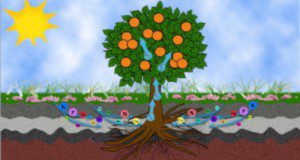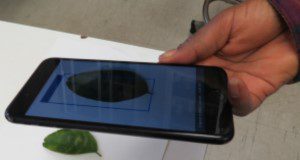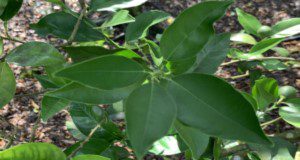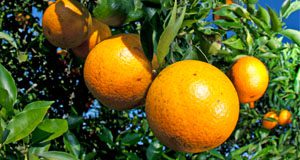This new two-page document discusses soil-applied and foliar fertilization for citrus trees as well as mobile and immobile nutrients and how they affect the choice of fertilization. Written by Tripti Vashisth and Chris Oswalt, and published by the UF/IFAS Horticultural Sciences Department.
https://edis.ifas.ufl.edu/hs1373
Tag: Citrus Nutrition and Fertilization
Computer Tools for Diagnosing Citrus Leaf Symptoms (Part 2): Smartphone Apps for Expert Diagnosis of Citrus Leaf Symptoms
Visual identification of nutrient deficiencies in foliage is an important diagnostic tool for fine-tuning nutrient management of citrus. This new 2-page article describes a new smartphone app that uses a trained neural network to identify disease and pest symptoms on citrus leaves through your phone’s camera. Written by Arnold Schumann, Laura Waldo, Perseveranca Mungofa, and Chris Oswalt, and published by the UF/IFAS Department of Soil and Water Sciences.
https://edis.ifas.ufl.edu/ss691
Citrus Leaf Sampling Procedures for Nutrient Analysis
To maintain balanced nutrients for optimal tree growth, citrus growers need to assess trees’ nutritional requirements. These assessments help prevent any nutrient deficiency or toxicity from compromising tree health and yield or reducing revenue. This new illustrated two-page instructional sheet gives a basic procedure for the citrus leaf sampling process, as well as additional suggestions for HLB-affected trees. Written by Tripti Vashisth, Jamie D. Burrow, Davie Kadyampakeni, and Rhuanito S. Ferrarezi, and published by the UF/IFAS Horticultural Sciences Department.
https://edis.ifas.ufl.edu/hs1355
Citrus Nutrition Management Practices
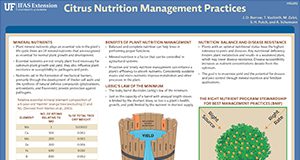
A new two-page fact sheet has been published by the Horticultural Sciences Department and the UF/IFAS Citrus Research and Education Center about citrus nutrition management practices. It was written by J.D. Burrow, T. Vashisth, M. Zekri, S.H. Futch, and A. Schumann.
http://edis.ifas.ufl.edu/hs1292
Citrus Nutrition UF/IFAS Grower Trials (Pamphlet)
Interested in learning more about citrus nutrition grower trials? This two-page pamphlet provides information on the goals, objectives, benefits, and considerations of the trials as well as specific information about trials being held from 2015-2017. The pamphlet also contains a sign up form for the trials. Written by Tripti Vashisth and Jamie D. Burrow and published by the Horticultural Sciences Department.
http://edis.ifas.ufl.edu/hs1283
Comparison of Soil Test Extractants for Available Soil Phosphorus in High pH Sandy Soils of South Florida
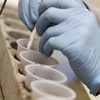 This document addresses the selection of soil nutrient extractants in high pH soils and discusses their relationship to both nutrition and fertilizer management. This document’s objective is to describe the impact of selected soil extractants on nutrient management and their ability to determine soil phosphorus availability. The target audience for this series dealing with citrus nutrition includes Certified Crop Advisers; citrus, vegetable, and sugarcane producers; fertilizer dealers; and other parties interested in crop fertilization practices. This 4-page fact sheet was written by Kelly T. Morgan and Kamal Mahmoud, and published by the UF Department of Soil and Water Science, December 2014.
This document addresses the selection of soil nutrient extractants in high pH soils and discusses their relationship to both nutrition and fertilizer management. This document’s objective is to describe the impact of selected soil extractants on nutrient management and their ability to determine soil phosphorus availability. The target audience for this series dealing with citrus nutrition includes Certified Crop Advisers; citrus, vegetable, and sugarcane producers; fertilizer dealers; and other parties interested in crop fertilization practices. This 4-page fact sheet was written by Kelly T. Morgan and Kamal Mahmoud, and published by the UF Department of Soil and Water Science, December 2014.
http://edis.ifas.ufl.edu/ss613
Boron (B) and Chlorine (Cl) for Citrus Trees
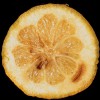 Since mineral nutrition is a major factor in maximizing yield of high-quality fruit, understanding the functions of mineral elements, diagnosing nutrient deficiencies, and providing needed fertilizers are essential. This 4-page fact sheet describes and discusses boron (B) and chlorine (Cl) deficiencies, functions, and recommended practices to alleviate nutritional problems. Written by Mongi Zekri and Tom Obreza , and published by the UF Department of Soil and Water Science, March 2014.
Since mineral nutrition is a major factor in maximizing yield of high-quality fruit, understanding the functions of mineral elements, diagnosing nutrient deficiencies, and providing needed fertilizers are essential. This 4-page fact sheet describes and discusses boron (B) and chlorine (Cl) deficiencies, functions, and recommended practices to alleviate nutritional problems. Written by Mongi Zekri and Tom Obreza , and published by the UF Department of Soil and Water Science, March 2014.
http://edis.ifas.ufl.edu/ss619
SL238/SS457 Nitrogen Fertilizer Sources: What does the future hold for citrus producers?
Revised! SL-238, a 4-page fact sheet by Thomas Obreza, Larry Parsons, and Kelly Morgan, discusses the factors influencing the price of nitrogen fertilizer sources and economic considerations for future nitrogen fertilizer availability. Published by the UF Department of Soil and Water Sciences, February 2009.
http://edis.ifas.ufl.edu/SS457
SL279/SS492 Diagnostic Nutrient Testing for Commercial Citrus in Florida
SL-279, a 6-page fact sheet by Rao Mylavarapu, Kelley Hines and Thomas Obreza, presents the details of several types of diagnostic tests for nutrient status and management in commercial citrus groves in Florida, as well as sample submission procedures. Includes references and a copy of the sample submission form (in the pdf version). Published by the UF Soil and Water Science Department, December 2008.
http://edis.ifas.ufl.edu/SS492
